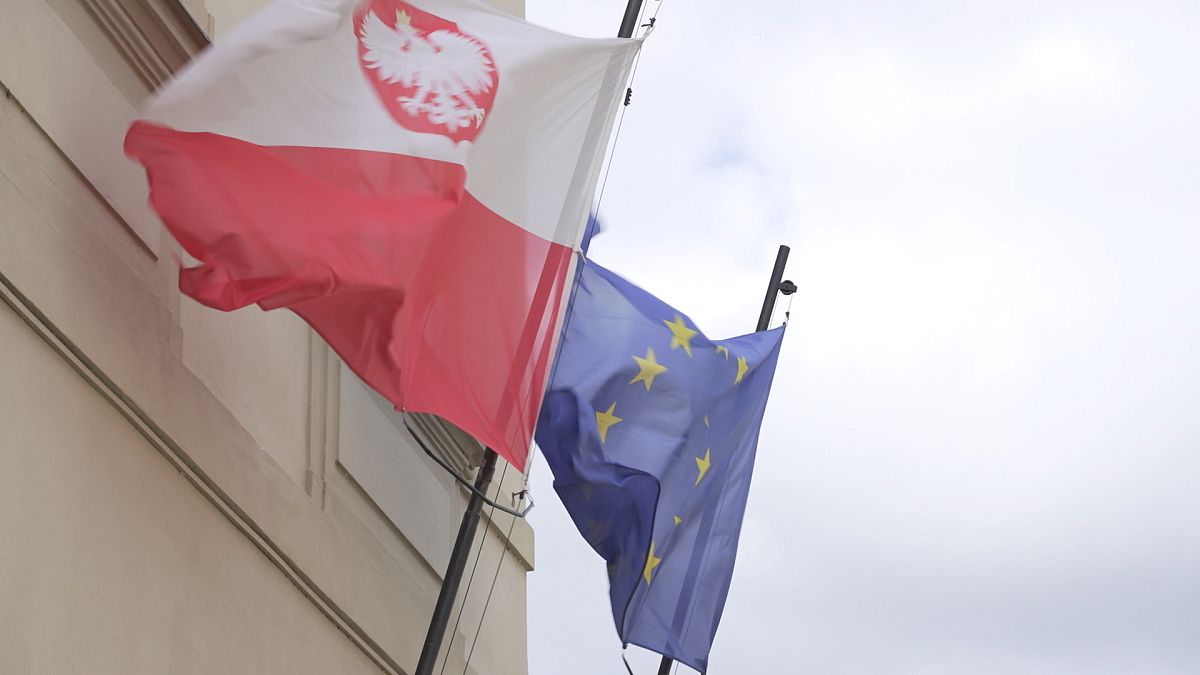The largest-ever expansion of the EU in 2004 saw 10 mainly eastern and central European countries fulfill long-held ambitions of joining the bloc. Many were emerging from decades of communist rule and had hopes that home-grown businesses would flourish in an environment of free enterprise.
2004 was a transformative year in the history of the European Union, with the single largest expansion of the bloc enlarging membership to 25 states, at the time. For the majority of the 10 newcomers – mostly central and eastern European nations – it was a political and social revolution, as they emerged from decades of communist rule and Moscow influence to a future aligned to Western European democracy. It also opened the door to the creation of thousands of businesses in the new EU members.
Press play to listen to this article
Green shoots of growth
Among those taking advantage of the new opportunities was MADARA Cosmetics, an organic skincare and makeup producer based in Latvia.
“We decided to really focus on local nordic nature for our active ingredient research because this is where we come from, this is where our heart is,” recalls Lotte Tisenkopfa-Iltnere, co-founder of MADARA. The current CEO Gunta Šulte says membership has given the company enormous growth potential: “Being part of the EU from day one has set the thinking of the founders of this company; it’s going to be a global company.”
Based in Riga, MADARA started 18 years ago in a small flat with just a handful of people. Local plants and trees provide some of the key ingredients for their products.
“My favourite is birch water because like tapping birch water is a very particular Nordic tradition,” says Lotte Tisenkopfa-Iltnere. “When we did the cellular study, we actually realised that birch water that makes tree revive in springtime does very comparable effects, similar effects to skin cells.”
Making the most of the single market
Being part of the European single market affects all aspects of business, from internationalisation to packaging.
“It is much easier to export, to make trade, to make agreements, because the cosmetic regulation is ‘homogene’ across the EU, says Lotte. “It makes less work for us for labelling, for legal departments, for quality department… I could only imagine what a difficult situation it would be if every country had a different regulation.”
Business Planet visited the firm’s HQ in Riga to find out how being part of the EU allowed Latvian companies to think big.
“MADARA very well represents the sort of companies and entrepreneurship that emerged the mid 2000s with the Baltic countries joining the EU,” CEO Gunta Šulte explained
“You remove this barrier of physical borders or physical obstacles for goods flow. So it removes that barrier of thinking in your head and you already think global from day one,” she added.
Gunta revealed that Madara has expanded into Europe and futher afield, thanks in part to e-commerce. “Over recent years we have seen very increasing demand for clean but also functional delivering formulas in Western markets. We have been rapidly growing in France and Germany. Last year in France we entered into more than 200 new retail doors,” she says.
A 20-year upward trend
The 10 countries that joined the European Union in 2004 have witnessed substantial economic growth. Trade costs have dropped and supply chains are better integrated – both for the new member states, and the existing EU countries. And the EU continues to expand; Bulgaria and Romania joined in 2007, Croatia in 2013. Candidate status has been granted to a further nine, including Albania, Serbia and Ukraine.
The Czech Republic was another member of the ‘class of 2004’, and Prague-based photovoltaics wholesaler Raylyst Solar is Europe’s fastest growing company, according to this year’s FT 1000 list. Germany is now Raylyst’s biggest market, says its Marketing Manager Michal Petřek:
“The single market is very crucial for us. It’s free movement of products, it helps us to be faster, no taxes on the borders, it makes everything cheaper and in the end we hire a lot of people from foreign countries, including Germans and Italians.”
Towards a green economy
Soaring demand for renewable power in Europe, spurred by the transition from fossil fuels, allowed Raylyst to report annual compound growth of over 800 percent between 2019 and 2022, according to Michal Petřek.
“This market is successful because we need to make a transformation of our energy infrastructure and actually photovoltaic power plants offer a very interesting possibility to make this decentralisation of our grids,” he says.
Joining the EU back in 2004 was a gamechanger for Latvia and the Czech Republic and the other member states, allowing the creation and growth of new businesses and new business models.

